Green Couscous/The Language of Herbs
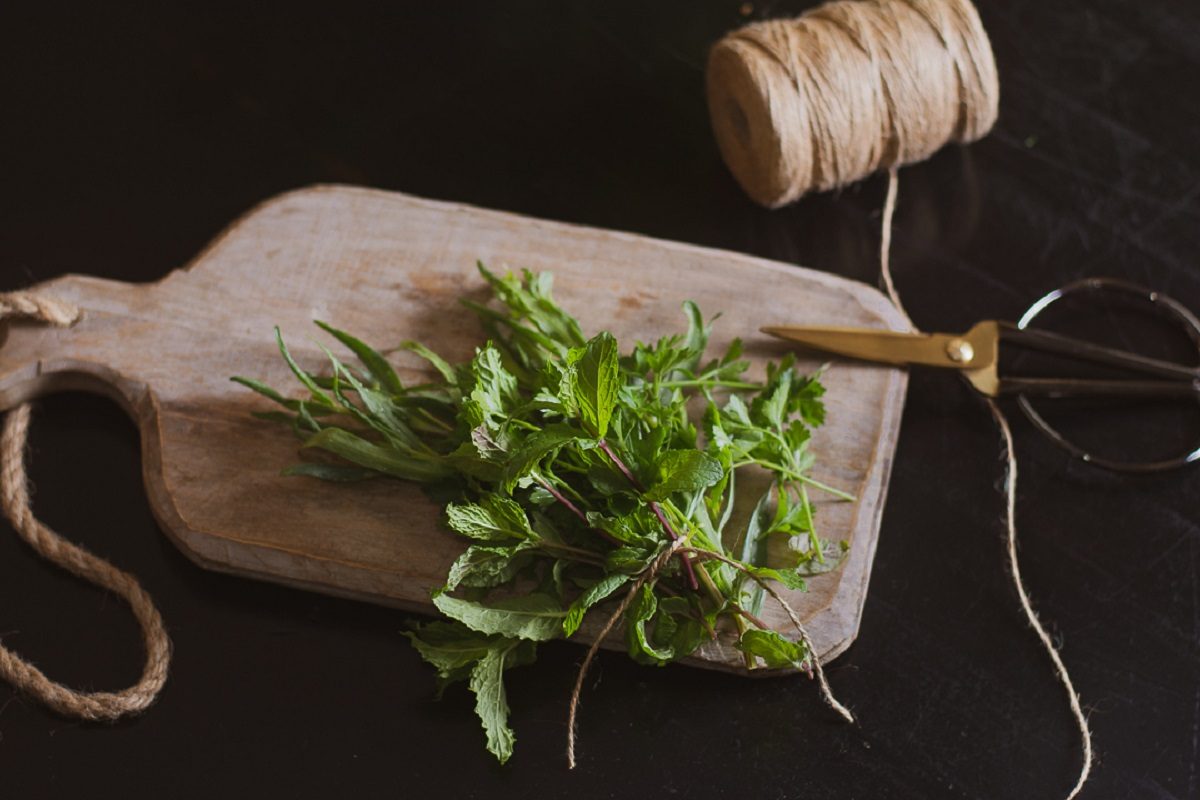
The official beginning of spring, to me, is when the first brave little sprouts of mint, tarragon, and oregano peek up through the still-frosted earth. All winter long I look forward to seeing those first signs of life. Since I am someone who loves cooking, I plant culinary herbs in every corner of my small yard. However, I also love herbs because their resilience can withstand my lack of a green thumb. I can always count on my herbs to come back no matter my neglect the summer before. I also find it somehow comforting that the same herbs that we use today were used and revered by our ancestors.
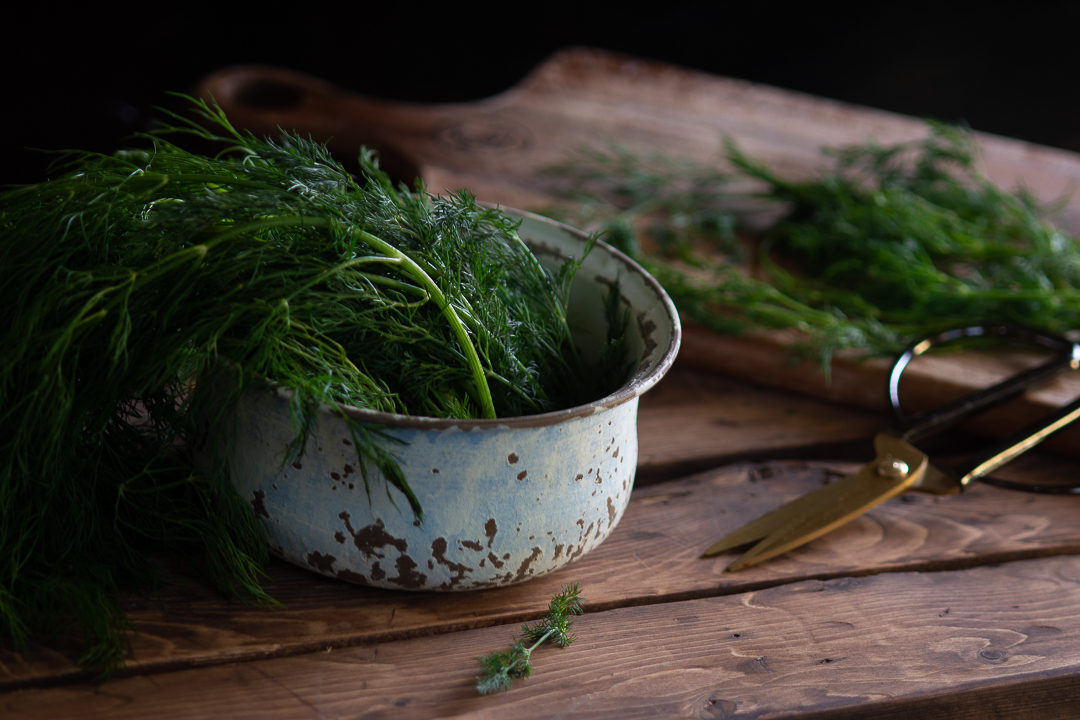
Our ancestors understood the healing properties of herbs. From Ancient Greece to the Middle Ages-from the Victorian Era to modern times–herbs have been an important element in keeping our minds and bodies healthy. Herbs have been added to teas, tinctures and salves for centuries, if not millennia. Herbs are the basis for aromatherapy. As you all know by now, I am fascinated with scents and their effect on our moods and memories. Imagine a bouquet of lavender or fresh basil and think about the feelings they may ignite within you…herbs are powerful!
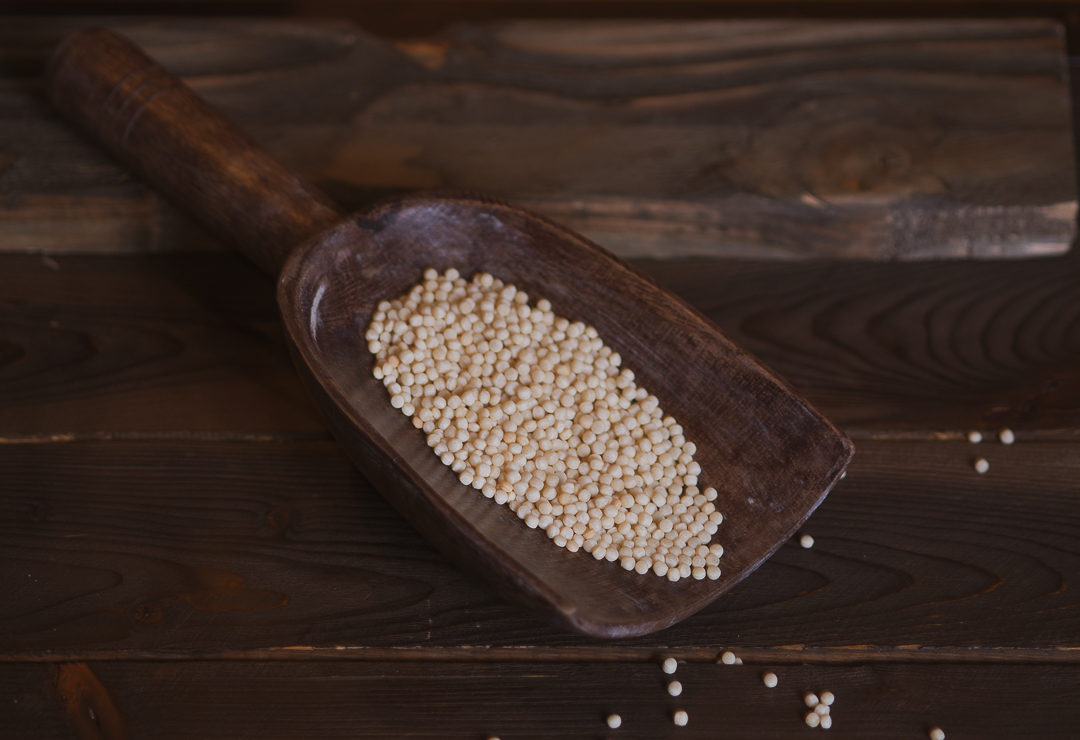
Derived from those powerful medicinal uses comes the secret symbolic language of herbs. Rosemary was used by the Ancient Greeks to stimulate memory, so now it also symbolizes remembrance. The word “oregano” comes from the Greek words oros, for “mountain,” and ganos, for “joy” meaning “ joy of the mountains”. They considered oregano a cure-all. Our modern science has proven that it indeed supports health in so many ways. Since good health is imperative for happiness, oregano symbolized joy. If oregano really does symbolize joy, I have an abundance of joy growing uncontrollably. How wonderful is that? Parsley, it is told, represents festivity and useful knowledge. Parsley also proclaims, “The woman of the house is boss.” Such incredible truth and wisdom coming from herbs!
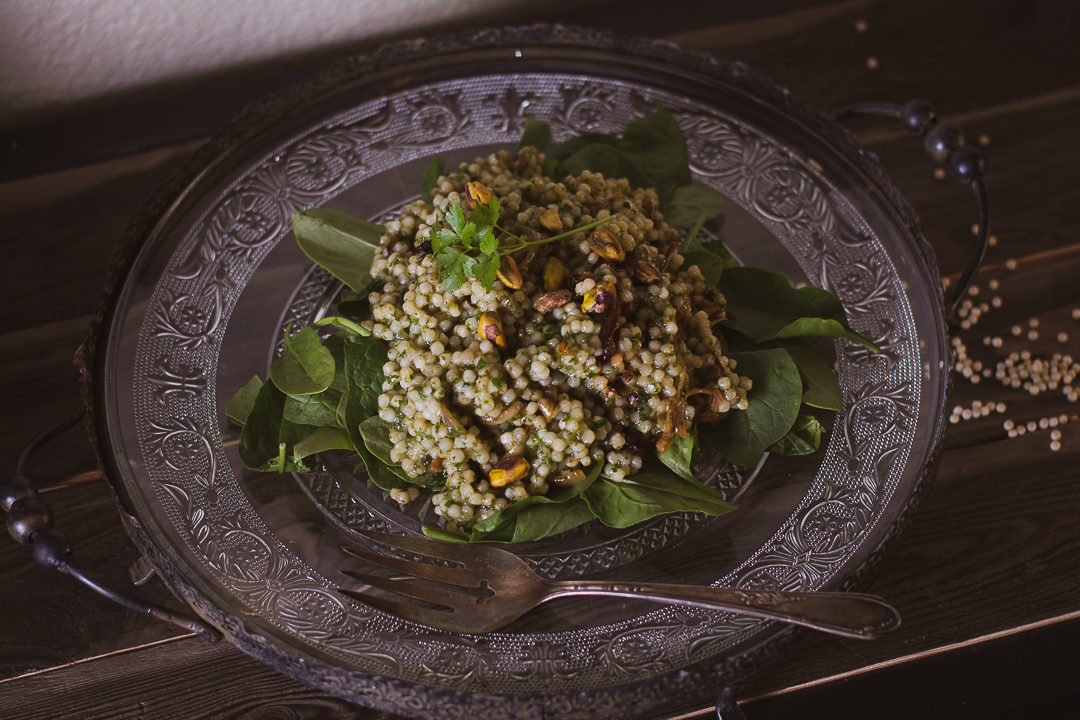
This recipe allows you to use whatever herbs in combination that you like, however, I would stick with fresh, tender herbs such as tarragon, parsley, mint, basil or dill. The woodier herbs such as sage, thyme and rosemary would be a bit strong for this delicate dish. It’s a beautifully light and refreshing side dish for fish or perhaps chicken. Or, spoon it onto a bed of greens for a lovely main course.
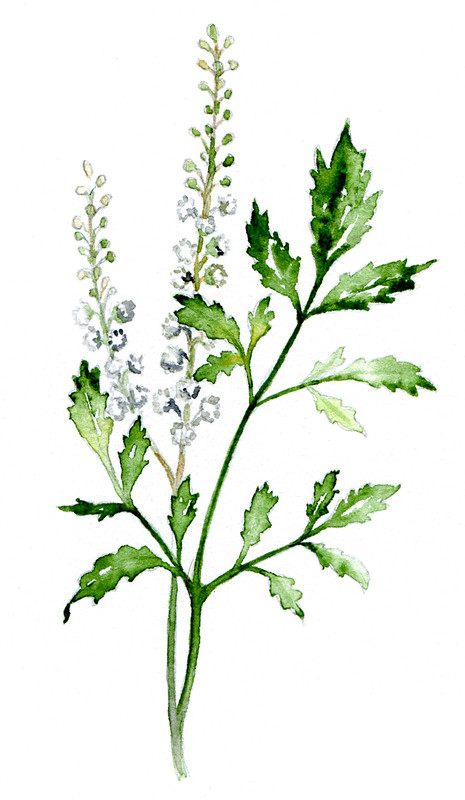
Green Couscous
Ingredients
- 1 cup Israeli couscous
- 3/4 cup boiling water or vegetable stock
- 1 small onion thinly sliced
- 1 Tbsp olive oil
- 1/4 tsp salt
- 1/4 tsp ground cumin
Herb Paste
- 1/3 cup chopped parsley
- 1 cup chopped cilantro
- 2 Tbsp chopped tarragon
- 2 Tbsp chopped dill
- 2 Tbsp chopped mint
- 6 Tbsp olive oil
- 3 green onions finely sliced
- 1 fresh green chile finely chopped
- 1 1/4 cup arugula leaves chopped
- 1/2 cup unsalted pistachios, toasted and roughly chopped
Instructions
- Add boiling water to the couscous in a medium pot. Cover the pot and simmer on low for 8-10 minutes, stirring occasionally. Add salt to taste and set aside.
- Fry the onion in the olive oil on medium heat until golden and completely soft. Add the salt and cumin and mix well. Leave to cool slightly.
- To make the herb paste, place all the ingredients in a food processor and blitz until smooth.
- Add the herb paste to the couscous and mix everything together well with a fork to fluff it up. Now add the cooked onion, green onions, green chile and arugula and gently mix. Top with pistachios. Serve at room temperature.

Can’t wait to try this!
Can’t wait to try this!